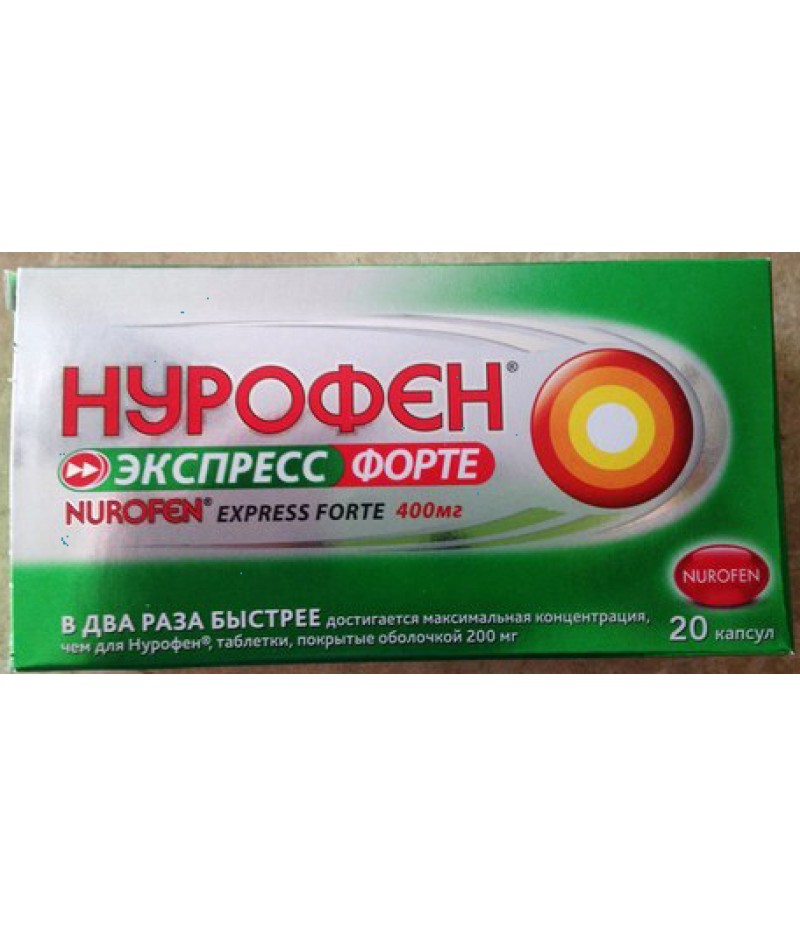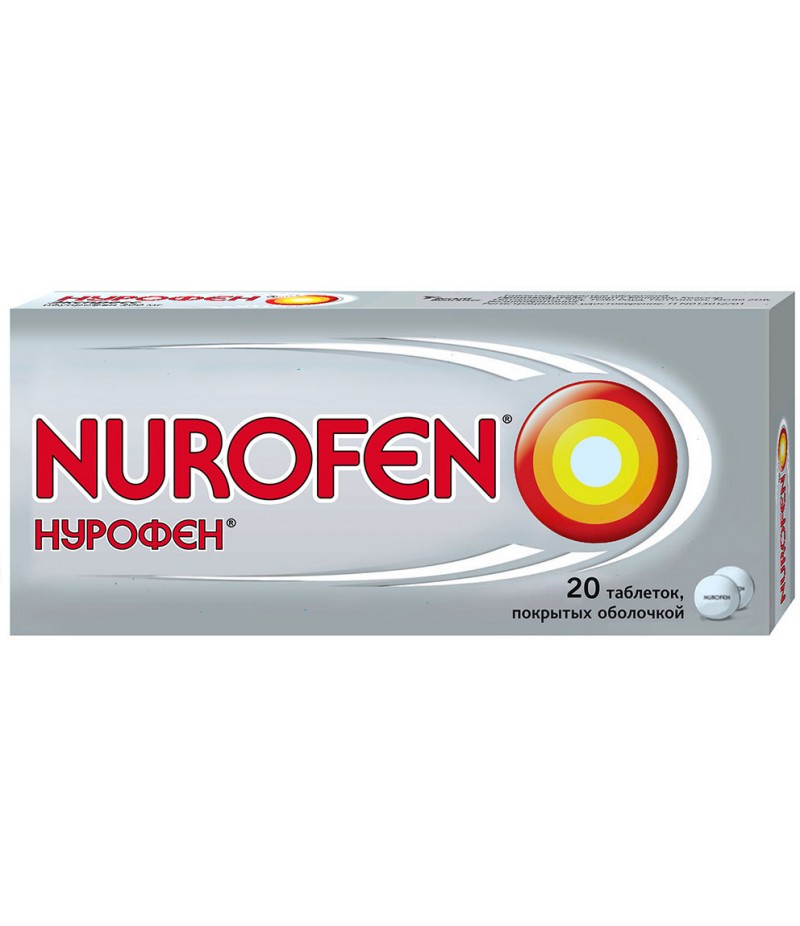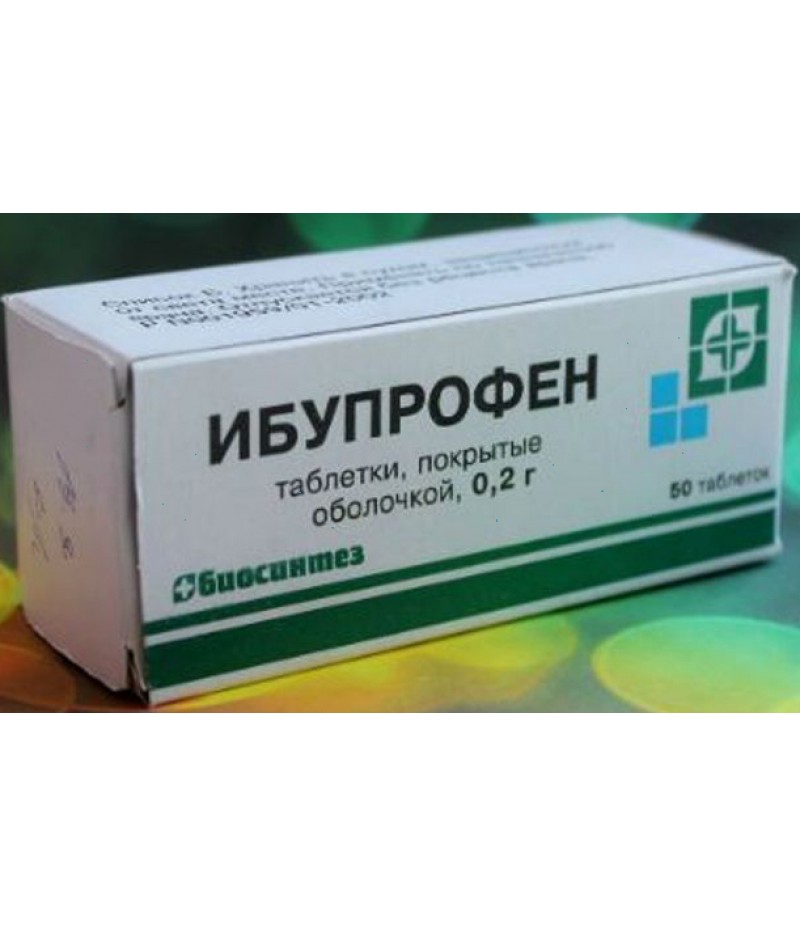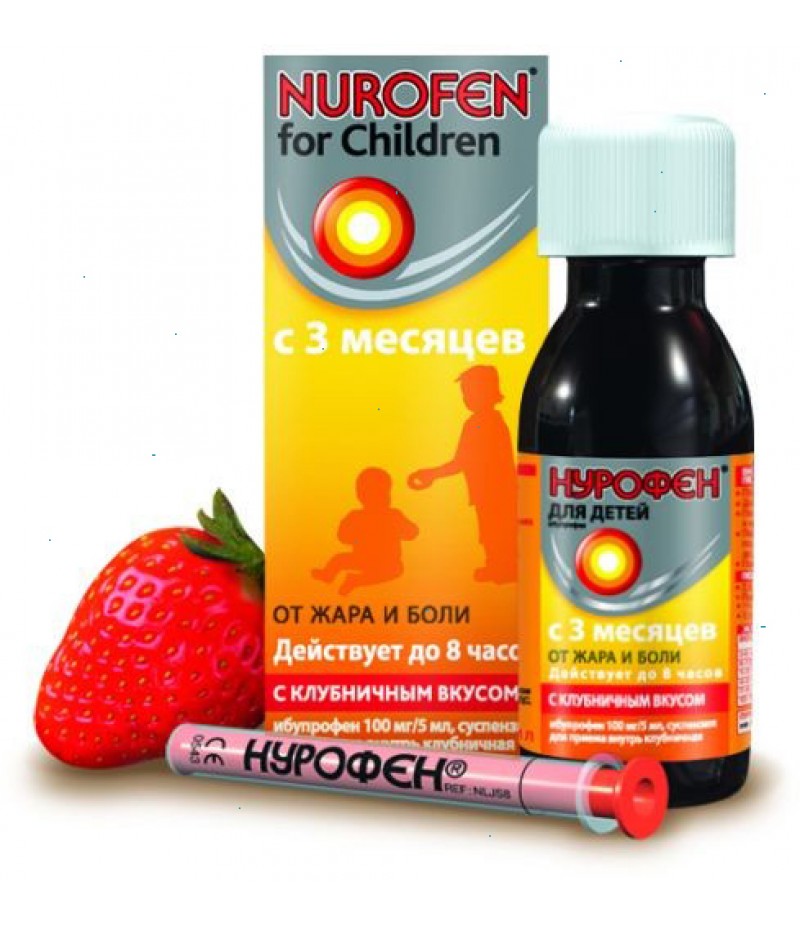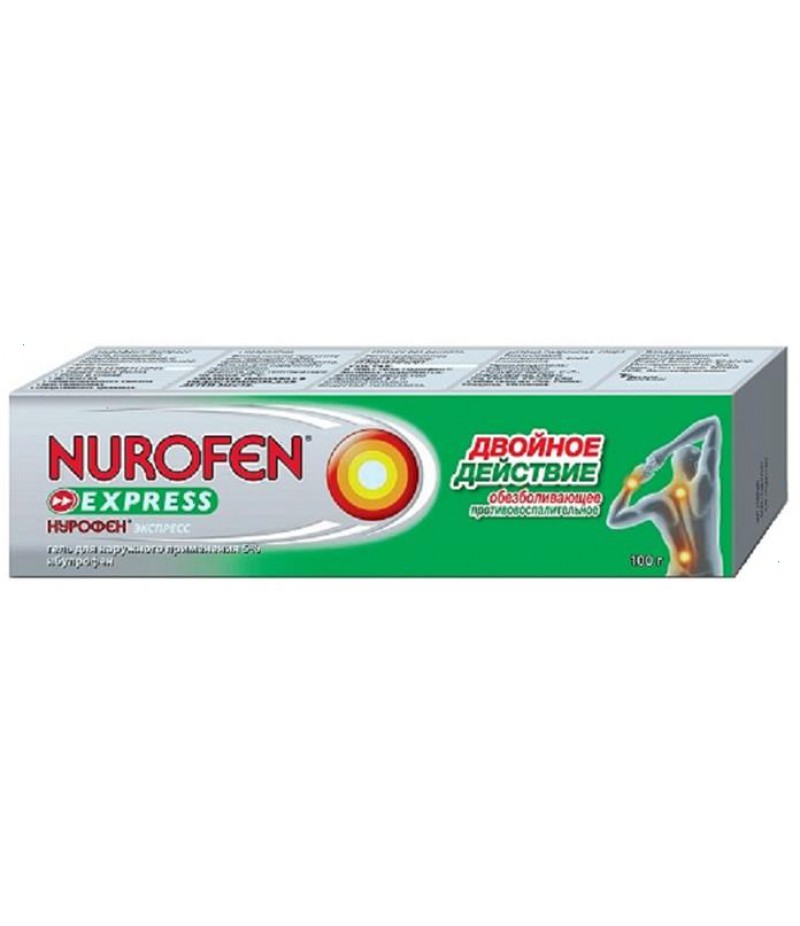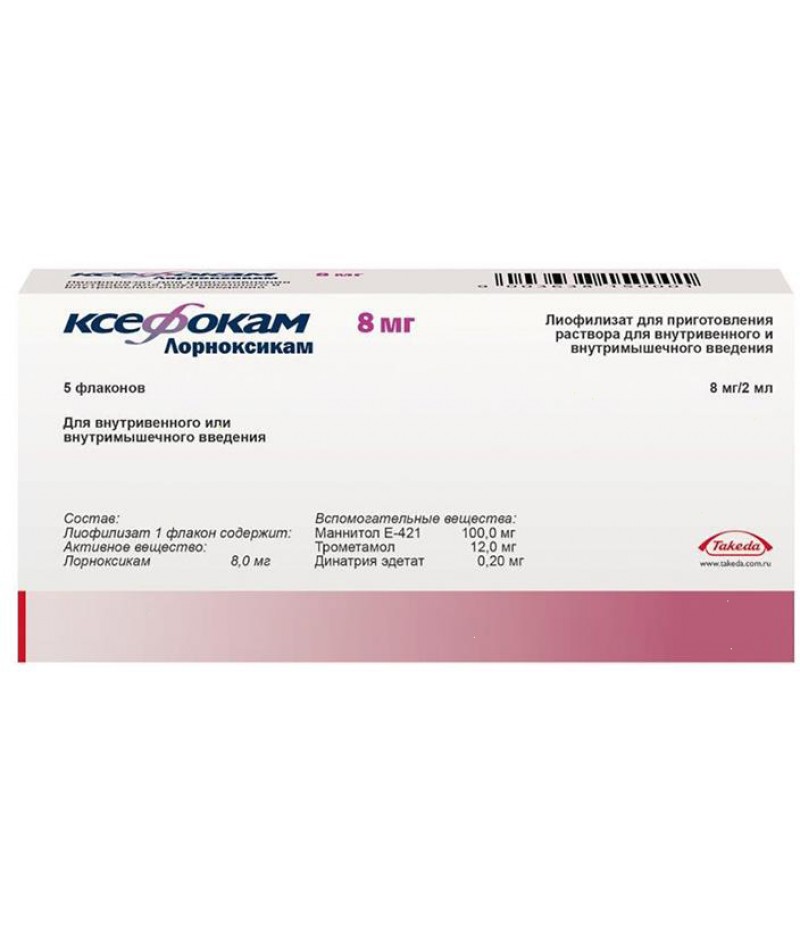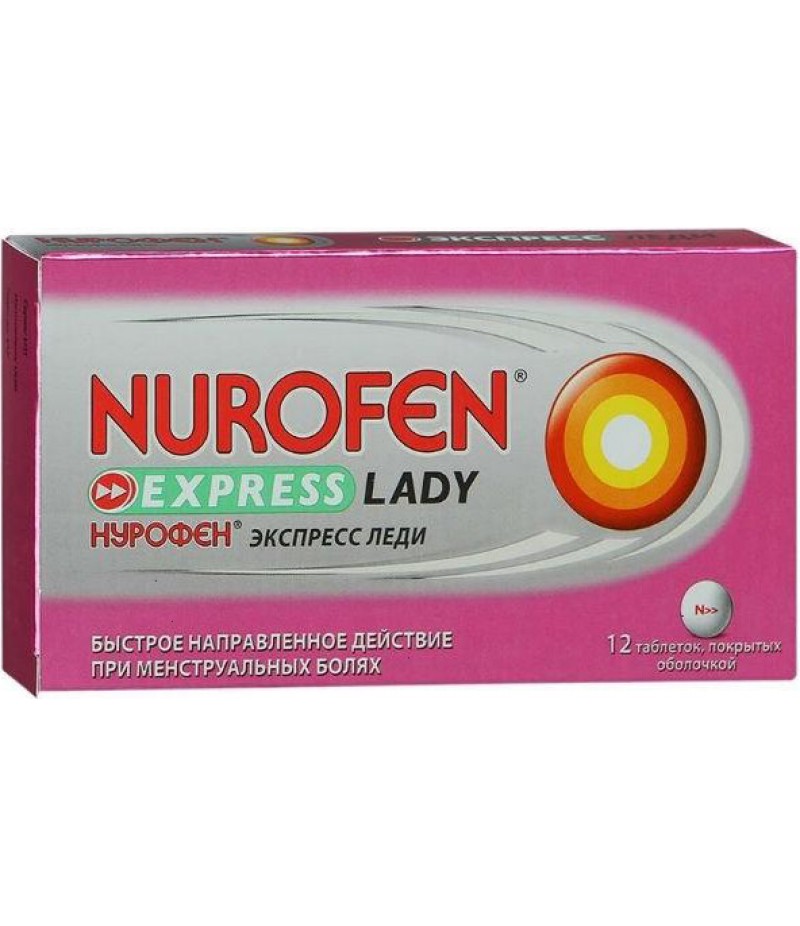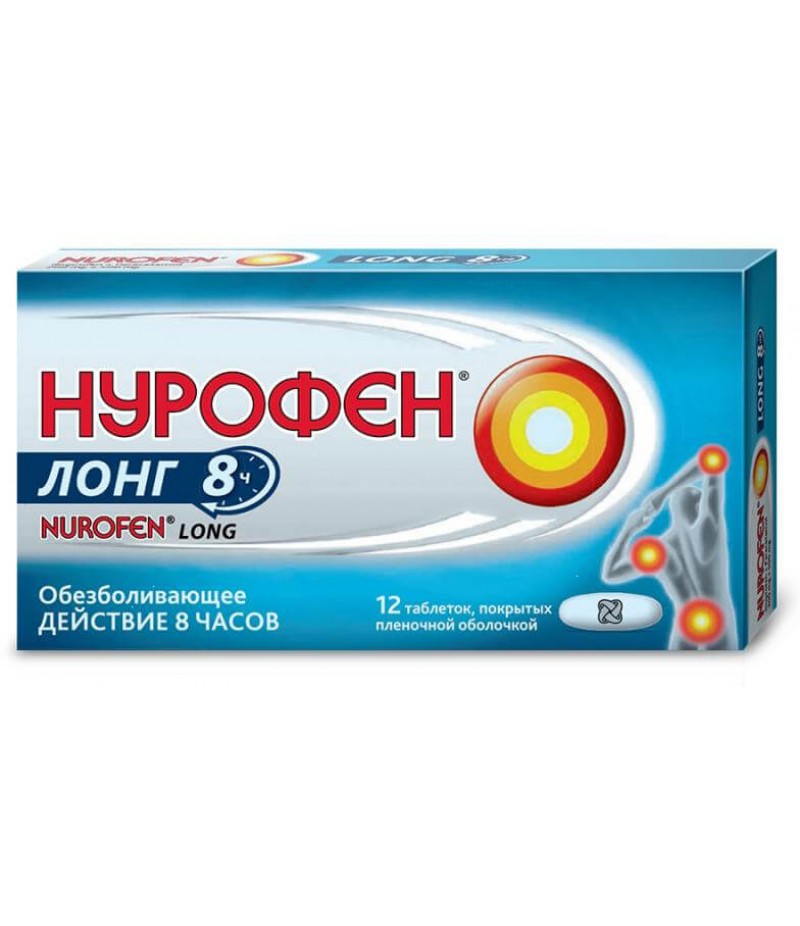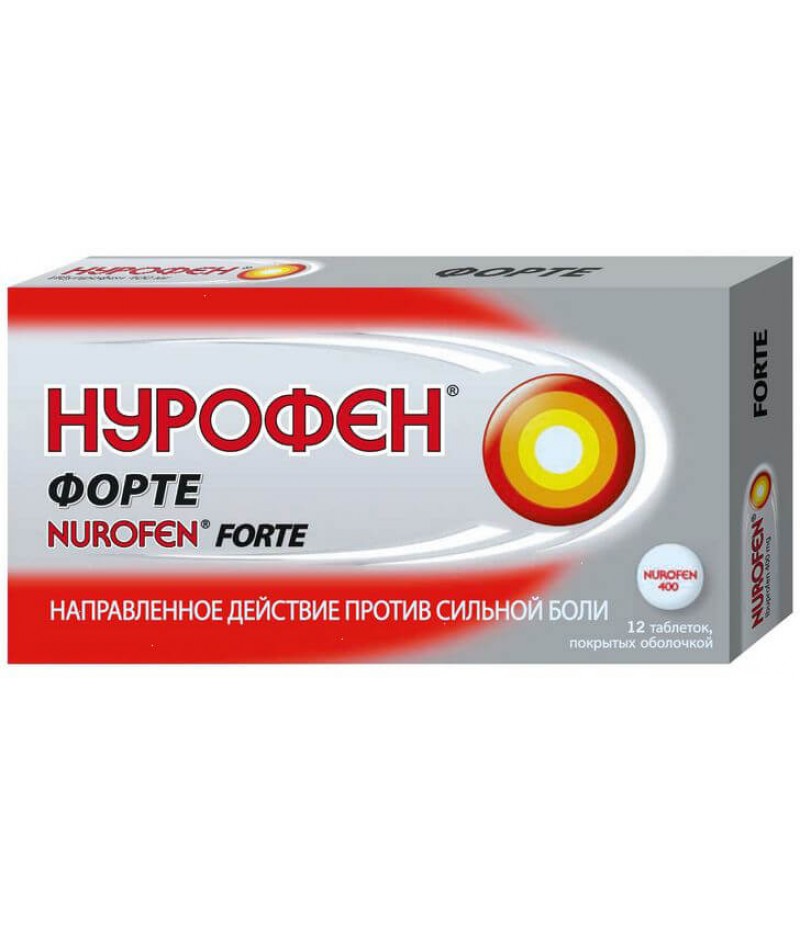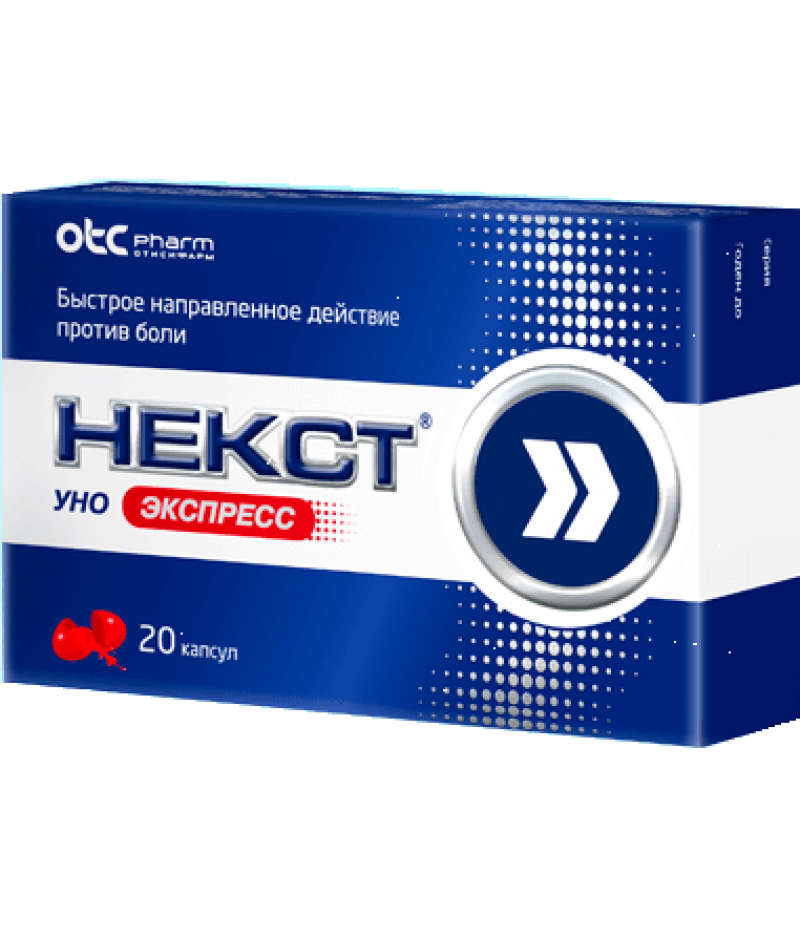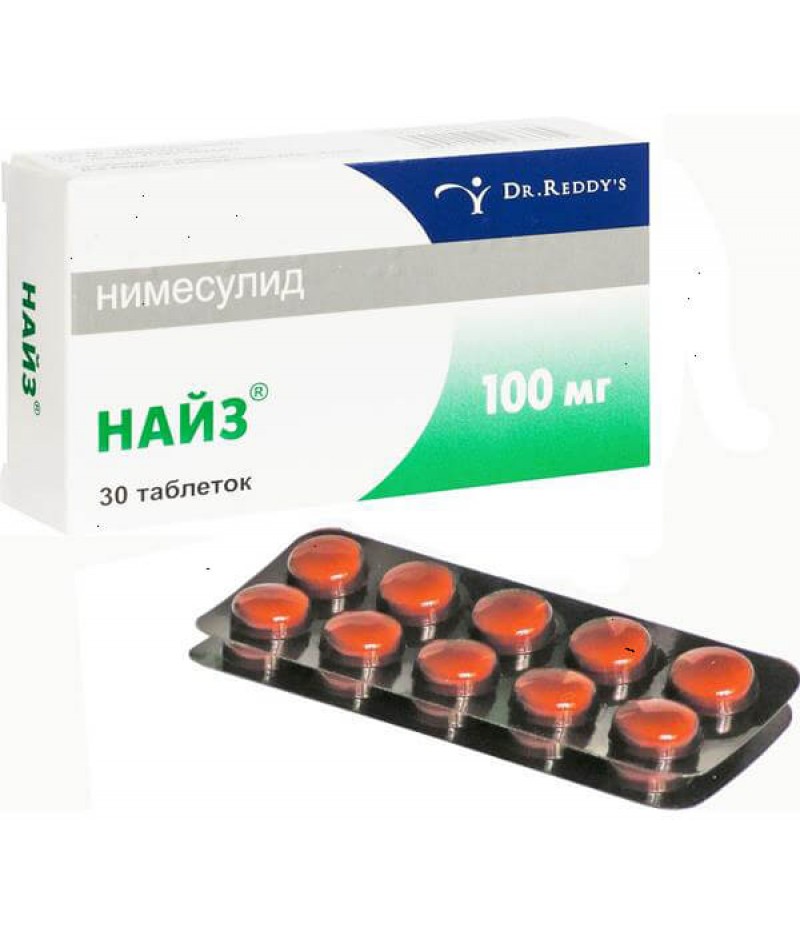Nurofen express forte 400mg #20
- $21.09
- 3 or more $19.90
- Availability:In Stock
Nurofen express forte instruction for useYou can buy Nurofen express forte hereActive substance - IbuprofenPharmacological groupNon-steroidal anti-inflammatory drugs, propionic acid derivativesForm of
Nurofen express forte instruction for use
You can buy Nurofen express forte here
Active substance - Ibuprofen
Pharmacological group
Non-steroidal anti-inflammatory drugs, propionic acid derivatives
Form of issue
Dense translucent gelatin capsules of red color, oval in shape, with the inscription "Nurofen". The contents of capsules are a transparent pinkish liquid. Blister, cardboard package
Composition
Active ingredient:
Ibuprofen (400 mg in 1 capsule)
Excipients:
potassium hydroxide, macrogol 600, purified water;
Composition of gelatin capsule:
gelatin, dye crimson, opacode, propylene glycol, sorbitol, isopropanol, hypromellose, purified water
pharmachologic effect
Anti-inflammatory, analgesic, antipyretic
Pharmacodynamics
The mechanism of action of the active component of the drug is due to inhibition of the biological synthesis of mediators of pain and inflammation (COX-1 and COX-2). Providing an inhibitory effect on cyclooxygenase, ibuprofen reduces the synthesis of prostaglandins in the focus of inflammation and at the center of thermoregulation of the hypothalamus, reduces the intensity of inflammation and has antipyretic effect. By reducing the level of prostaglandins in the nerve tissues, slowing the generation and carrying a painful pulse, the drug produces an analgesic effect.
In parallel, due to the inhibition of cyclooxygenase activity, synthesis of thromboxane A decreases, which entails suppression of platelet aggregation.
Pharmacokinetics
With internal use ibuprofen is almost completely absorbed from the mucous membrane of the digestive tract into the systemic blood stream, reaching a peak concentration in the blood plasma after 45 minutes. With simultaneous intake of food, the rate of absorption slows down. LS is metabolized in the liver with the formation of inactive metabolites, has the ability to penetrate the blood-brain barrier. 80% of the drug is excreted in the form of metabolites along with urine, 20% - through the intestine, 10% - unchanged. The half-life of Nurofen is 2-3 hours.
Indications for use
Degenerative-dystrophic and inflammatory pathologies of the musculoskeletal system;
Myalgia;
Pain in the joints;
Toothache;
Migraine;
Cranialgia (as a drug of symptomatic therapy);
Neuralgia of a different nature;
Dysmenorrhea;
Hyperthermia (high body temperature);
ARVI, influenza (as an antipyretic and anti-inflammatory drug).
Individual intolerance to the components of the drug;
Age under 12 years;
Ulcerous lesions of the digestive tract;
Propensity to develop allergic reactions triggered by the ingestion of salicylates;
Bronchial asthma;
Hypokalemia;
Inflammation of the intestine;
Active gastrointestinal bleeding;
Hepatic / kidney failure;
Violations of blood rheology (hemophilia, leukopenia, hypocoagulation);
Autoimmune pathology of connective tissue;
Pregnancy (especially III trimester) and the period of breastfeeding;
Decreased functions of the hearing aid.
Ibuprom Sprint Caps (capsules);
Nurofen UltraCap Forte (capsules);
Advil Liquvi Gels (capsules).
Contraindications
Individual intolerance to the components of the drug;
Age under 12 years;
Ulcerous lesions of the digestive tract;
Propensity to develop allergic reactions triggered by the ingestion of salicylates;
Bronchial asthma;
Hypokalemia;
Inflammation of the intestine;
Active gastrointestinal bleeding;
Hepatic / kidney failure;
Violations of blood rheology (hemophilia, leukopenia, hypocoagulation);
Autoimmune pathology of connective tissue;
Pregnancy (especially III trimester) and the period of breastfeeding;
Decreased functions of the hearing aid.
Dosing and Administration
Adolescents and adults Nurofen in capsule form appoint 2-3 times a day for 400 mg (1 caps.). According to medical indications, the dose can be doubled (for adults - no more than 1.2 g per day, adolescents - not more than 1 g per day).
Drink capsules should be a moderate amount of fluid. In the absence of therapeutic effect after three days of admission, it is necessary to stop treatment and always consult a doctor.
Drug Interactions
With the simultaneous use of Nurofen with lithium preparations, an increase in the concentration of lithium in the blood is possible. Therefore, in this case, constant monitoring of its level is required.
Ibuprofen is able to increase the concentration of digoxin in the blood plasma.
Simultaneous use of antihypertensive and diuretics with Nurofen may cause a decrease in the antihypertensive effect of these drugs. Therefore, they should be combined with caution, under constant monitoring of blood pressure.
The complex administration of ibuprofen with other non-steroidal anti-inflammatory drugs or corticosteroids significantly increases the risk of developing adverse side effects.
With the simultaneous administration of Nurofen with anticoagulants or antithrombotic agents, the risk of gastrointestinal bleeding increases.
It is not recommended to take ibuprofen in combination with methotrexate, as this leads to an increase in its toxicity. To avoid the development of adverse reactions, NSAIDs are taken no earlier than one day after the use of methotrexate.
The combined use of Nurofen with warfarin potentiates its anticoagulant effect.
Nurofen can lead to increased toxicity and plasma concentrations of cyclosporins and tacrolimus.
Ibuprofen does not enter into a drug interaction with antidiabetic drugs and does not reduce their therapeutic effect. However, simultaneous use requires constant monitoring of blood glucose levels, and, if necessary, dosage adjustment.
When Nurofen is used together with the antibiotics of the quinolone series, there is a risk of seizures.
The analgesic effect of ibuprofen is enhanced by caffeine.
Side effects
From the gastrointestinal tract: nausea, vomiting, stool disorders, flatulence. In rare cases, irritation of the rectum, vomiting with blood impurities, hemorrhagic diarrhea, esophageal disorders, colitis, pancreatitis, melena, gastrointestinal ulcer;
From the side of the central nervous system: dizziness, headache, tinnitus, sleep disorders, increased fatigue;
From the cardiovascular system: development of edema, lability of blood pressure, heart failure;
From the hepatobiliary system: increased hepatic enzymes, a violation of liver function, jaundice, liver failure;
On the part of the urinary system: if the kidney function is broken, oliguria, cystitis, nephrotic syndrome, interstitial nephritis;
On the part of the skin: allergic reactions, hives, Quincke's edema, Lyell's syndrome, Stephen-Johnson syndrome, bronchospasm, anaphylaxis;
From the hematopoietic system: anemia, leukopenia, thrombocytopenia, pancytopenia.
Overdose
Overdose may lead to headaches and abdominal pain, nausea, vomiting, diarrhea, lowering of blood pressure, tinnitus, bradycardia, drowsiness, overexcitation, disorientation in space, convulsions, acute renal failure, metabolic acidosis, coma.
There is no specific antidote. The patient is prescribed symptomatic treatment, including enterosorbents reception, alkaline drink and means causing forced diuresis (artificial urination stimulation). In parallel, correction of disorders from the gastrointestinal tract, as well as special measures to eliminate arterial hypertension, seizures and respiratory depression.
special instructions
When using other analgesics before using Nurofen, a doctor's consultation is necessary.
The drug is allowed to use in the I and II trimester of pregnancy only if the intended benefit to the mother exceeds the potential risk to the fetus. This drug is not recommended for treatment of women planning a pregnancy, as it has a negative impact on fertility.
Patients suffering from liver and kidney disease, as well as people of advanced age, Nurofen should be taken with extreme caution.
The drug has a negative effect on the ability to drive vehicles or perform work that requires an increased concentration of attention and speed of psychomotor reactions. Therefore during its reception it is recommended to refrain from similar actions.
Leave conditions
Nurofen express capsules are referred to as non-prescription drugs.
Storage conditions
Store in a dry place, protected from light, out of reach of children, at a temperature of 15-25 ° C. Shelf life: 2 years. After the expiration date the preparation is not suitable for use.
Manufacturer
Rekkkitt Benkizer Helssker Ltd, Great Britain

